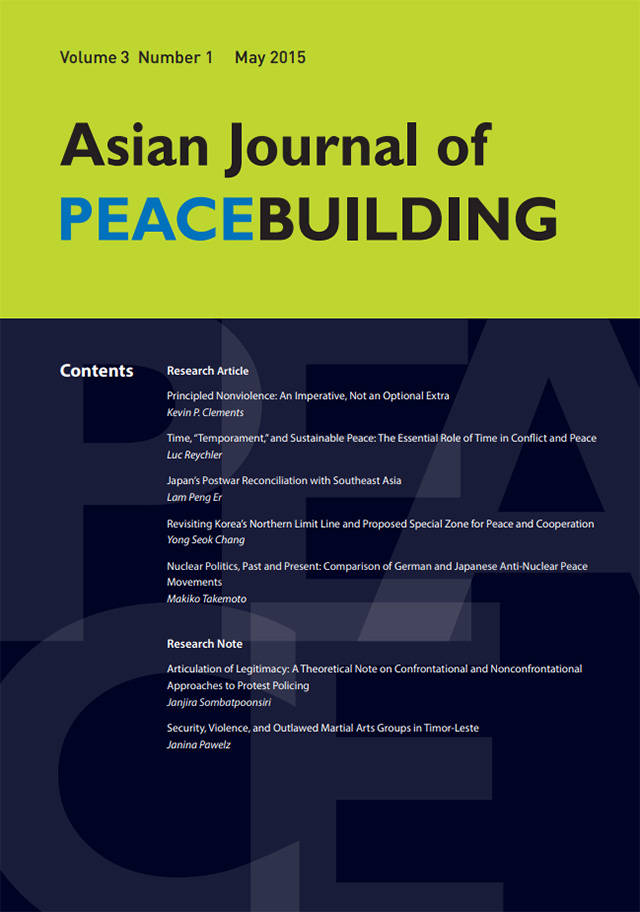- This article compares principled and strategic nonviolent movements. While pragmatic, strategic nonviolence is effective for movements seeking to overthrow corrupt repressive and dictatorial regimes, it is much less successful in the progressive transformation of state and political systems. This is because principled nonviolence and movements associated with such value systems are ambivalent about political power and the role of the Weberian state. Conversely strategic nonviolent movements are willing to utilize the coercive power of the state for their own political purposes and in doing so often become fatally compromised, as happened in Egypt, Palestine and Syria. The promise of principled nonviolence is social, political, and economic institutions capable of transcending Machiavellian politics because of a radical commitment to pacifism and emancipatory political processes.
Back Issues
Research Article
Principled Nonviolence: An Imperative, Not an Optional Extra
Kevin P. Clements pp. 1-17
PDF Download

